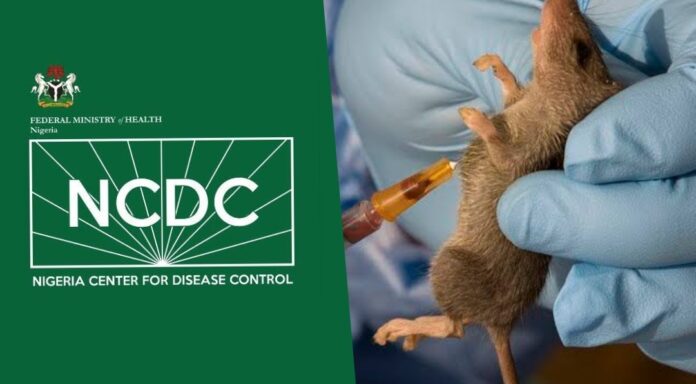By Kabiru Abdulrauf.
The death toll from the ongoing Lassa fever outbreak in Nigeria has risen to 127, according to the latest situation report released by the Nigeria Centre for Disease Control and Prevention (NCDC) on Tuesday.
From January 1 to April 6, 2025, a total of 674 cases have been confirmed from 4,025 suspected infections across 18 states and 93 local government areas. The current Case Fatality Rate (CFR) stands at 18.8%, showing a slight rise from the previous 18.5%, underscoring the virulence of the outbreak.
The NCDC report highlights that the epidemic remains heavily concentrated in three states: Ondo (30%), Bauchi (25%), and Edo (16%), which together account for a staggering 71% of confirmed cases. The remaining 28% of cases are spread across 15 other states, including Taraba, Ebonyi, and Gombe, where new cases were recently identified.
Lassa fever is a viral hemorrhagic illness primarily spread through contact with food or household items contaminated by the urine or feces of infected Mastomys rats, commonly known as African rats. Human-to-human transmission is also possible, particularly in healthcare settings without adequate infection control.
Between weeks 13 and 14 of 2025, Nigeria saw a slight uptick in newly confirmed cases—from 14 to 15—indicating that the outbreak, while not surging, remains active. Encouragingly, no new infections among healthcare workers were reported during the latest week under review.
In response to the persistent threat, the NCDC has activated the National Lassa Fever Multi-Partner, Multi-Sectoral Incident Management System, tasked with coordinating efforts across federal, state, and local levels. The system is designed to improve surveillance, case management, risk communication, and community engagement.
While Lassa fever outbreaks are seasonal and not uncommon in Nigeria, this year’s mortality figures are a stark reminder of the country’s ongoing public health challenges and the need for sustained investment in epidemic preparedness, rodent control, and healthcare infrastructure—especially in rural and underserved regions.
The NCDC continues to urge Nigerians to maintain high standards of hygiene, store food in rodent-proof containers, and seek medical attention immediately if symptoms such as fever, vomiting, or bleeding occur.










